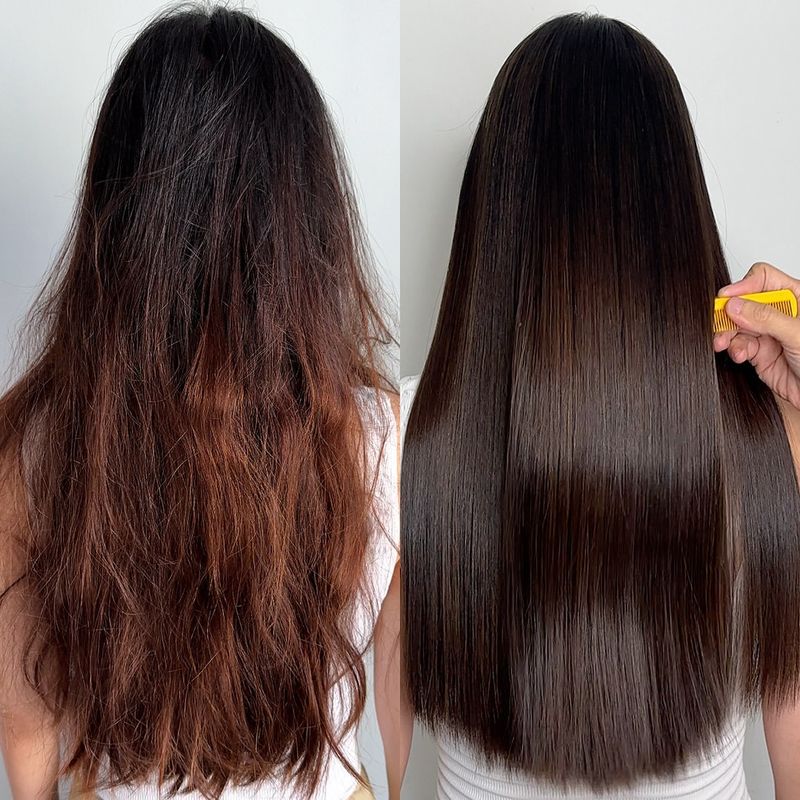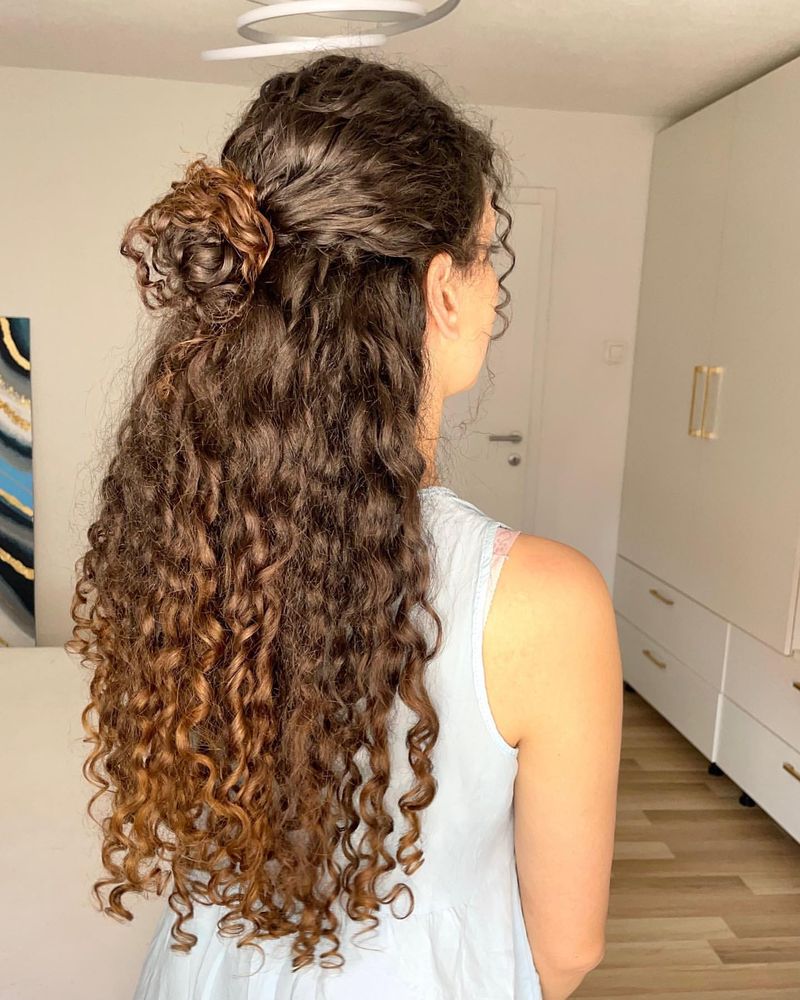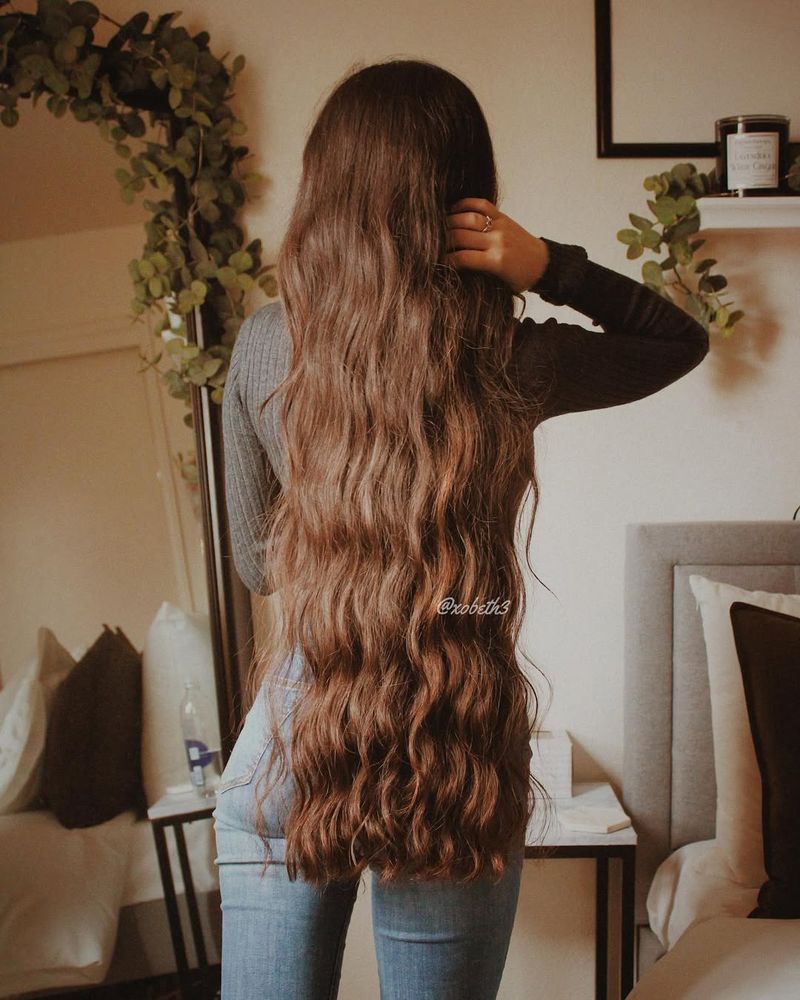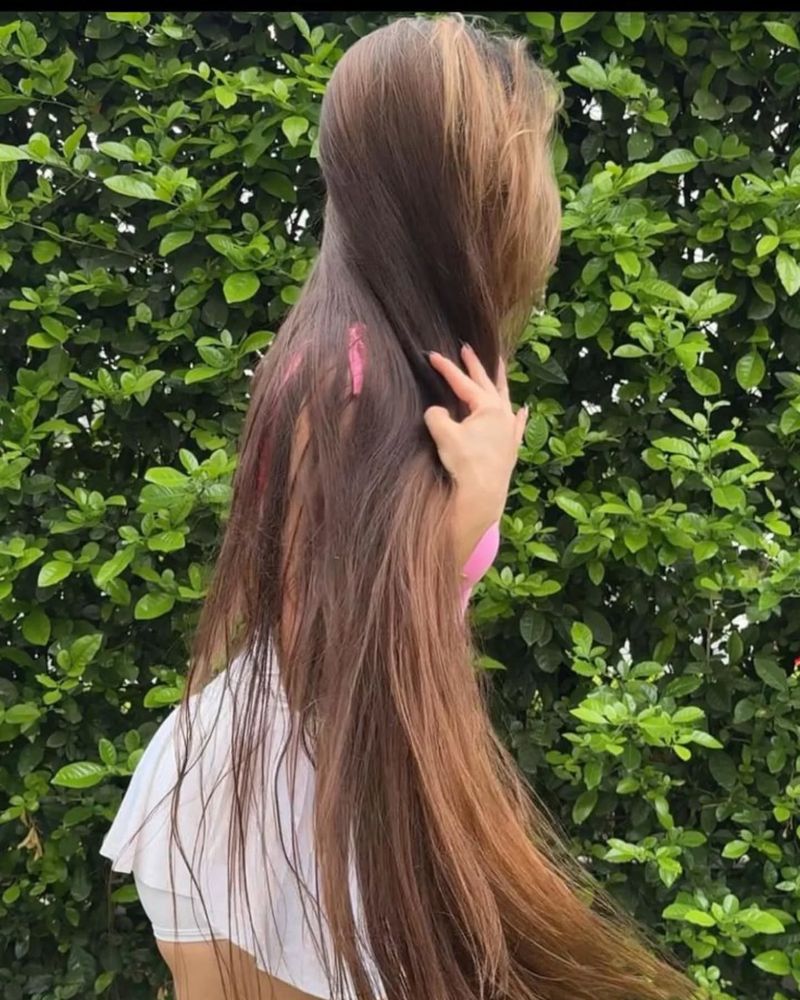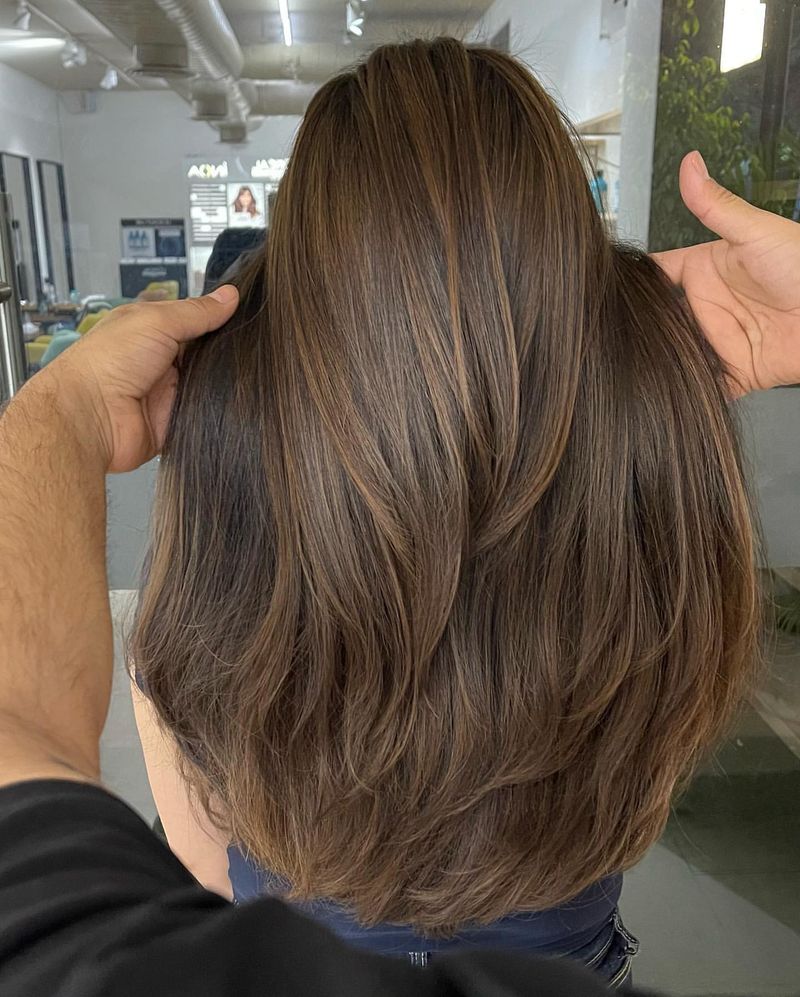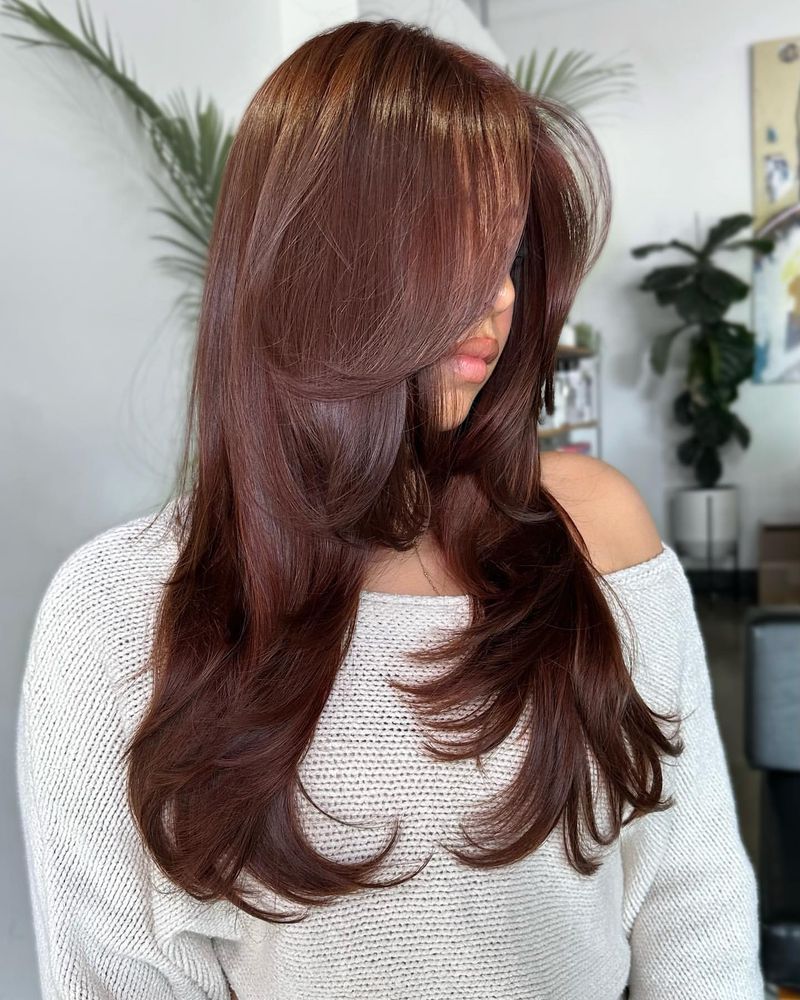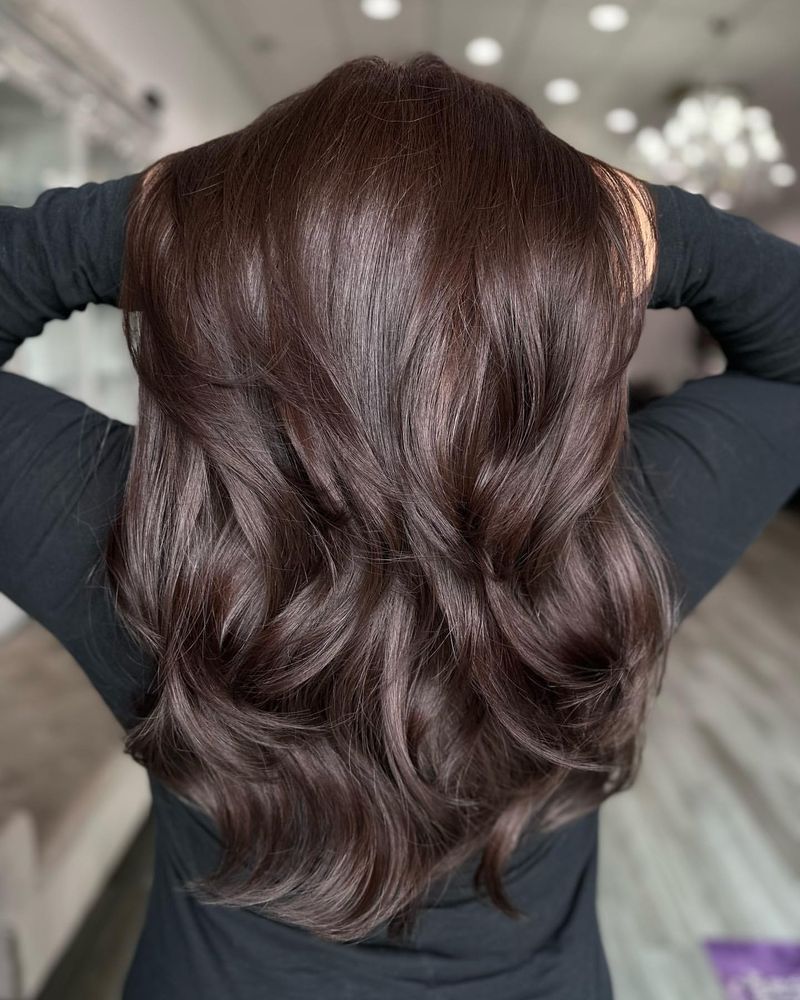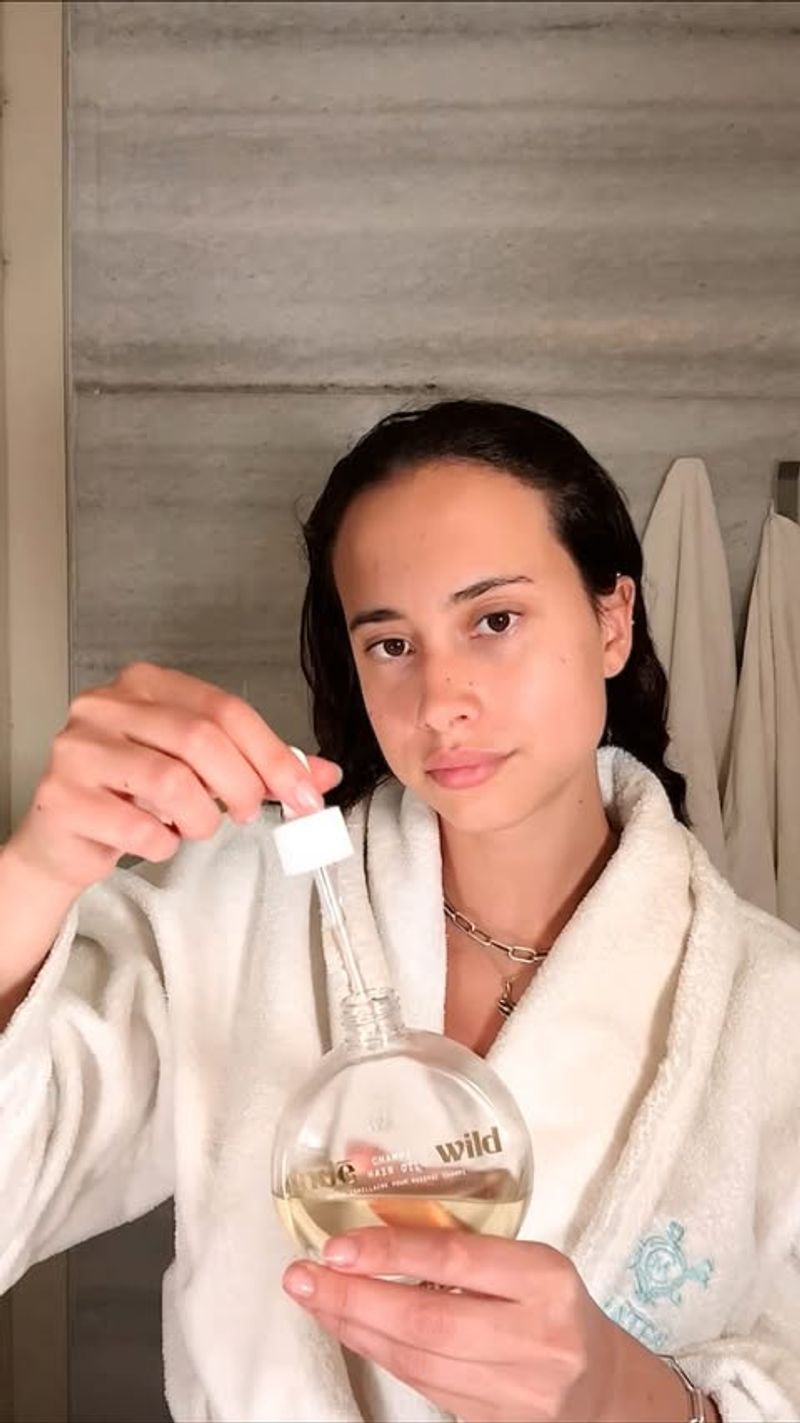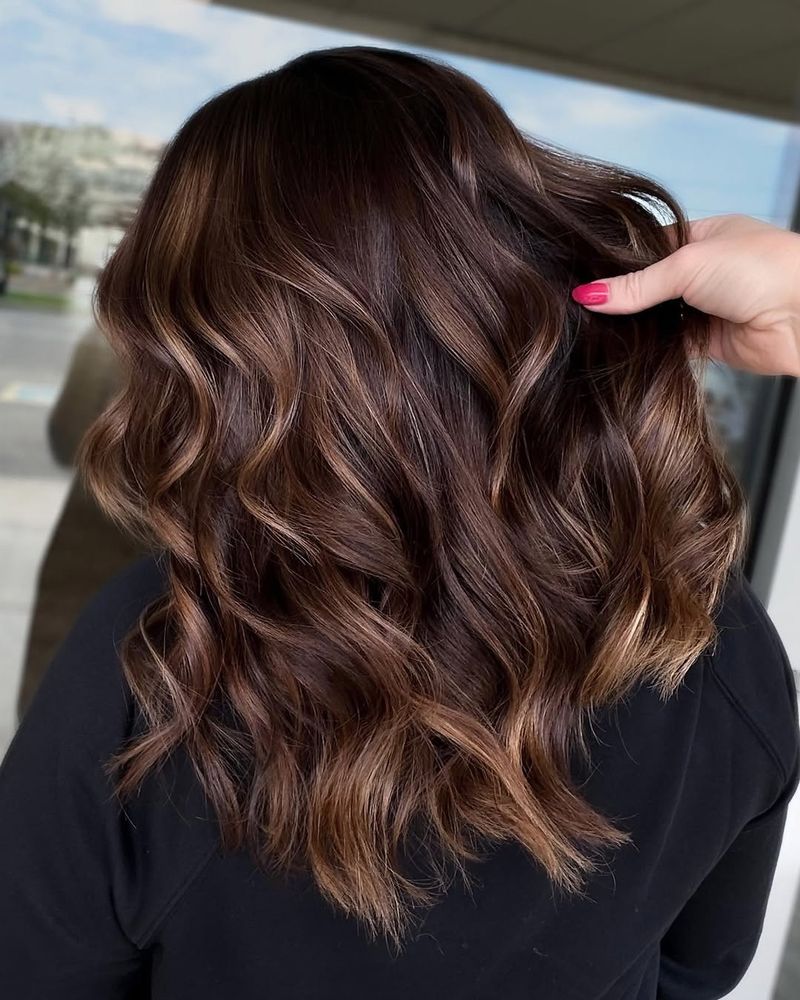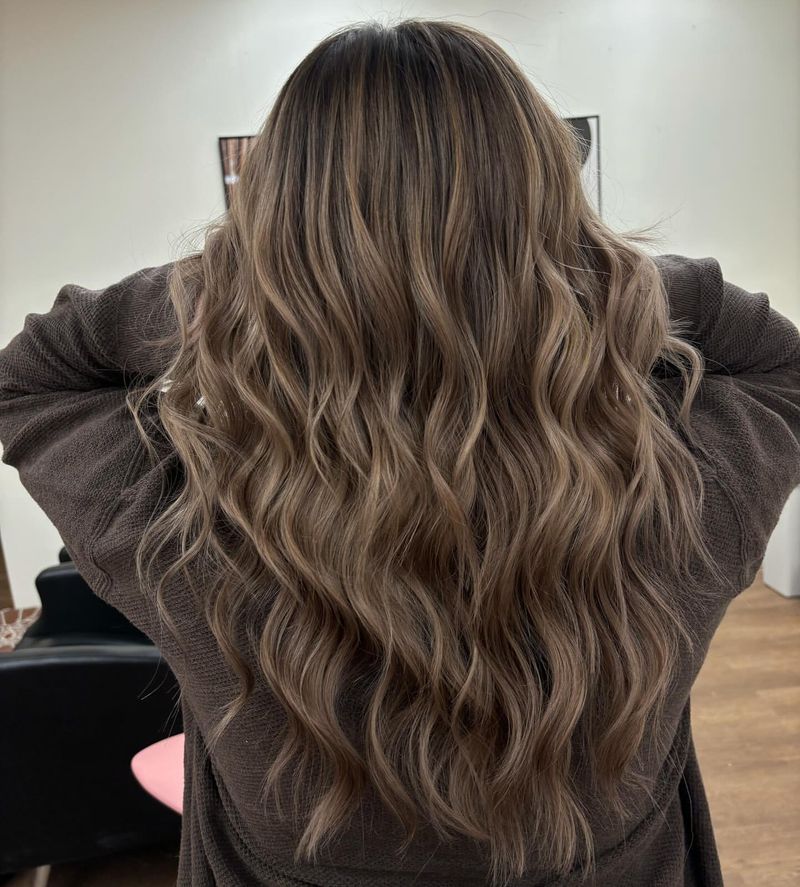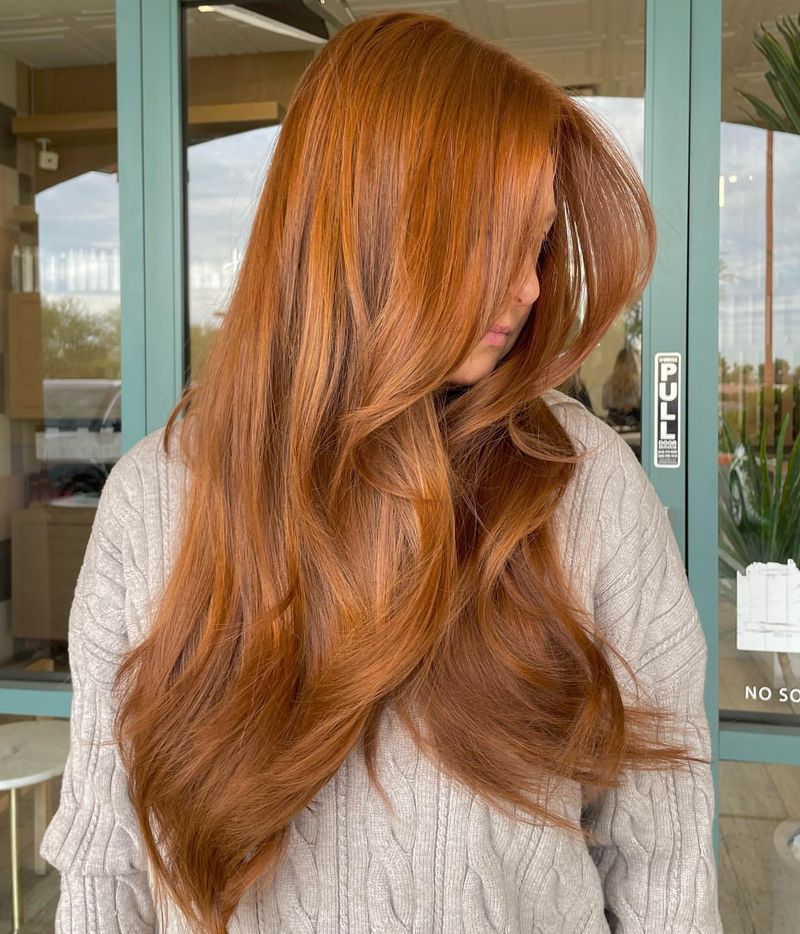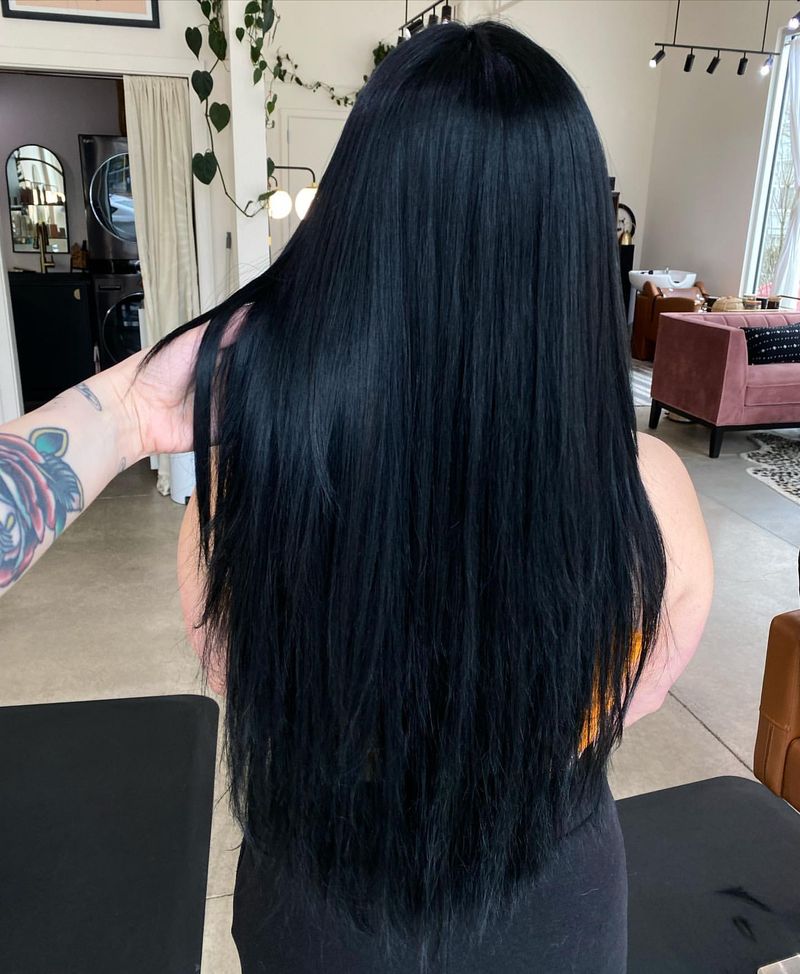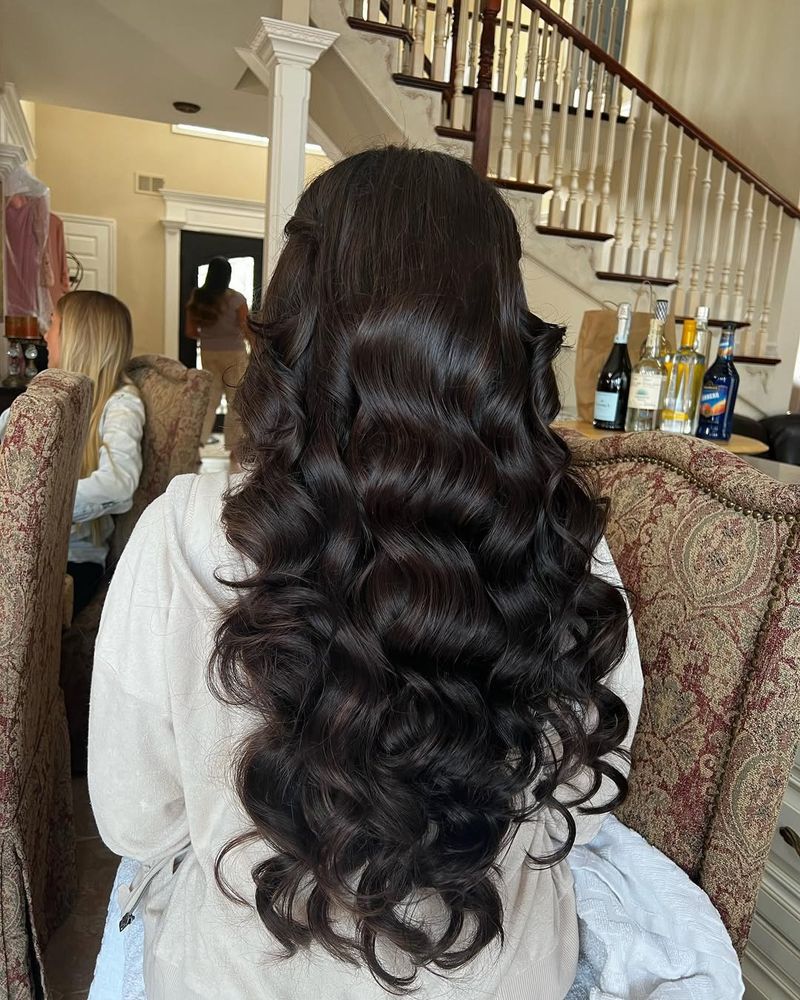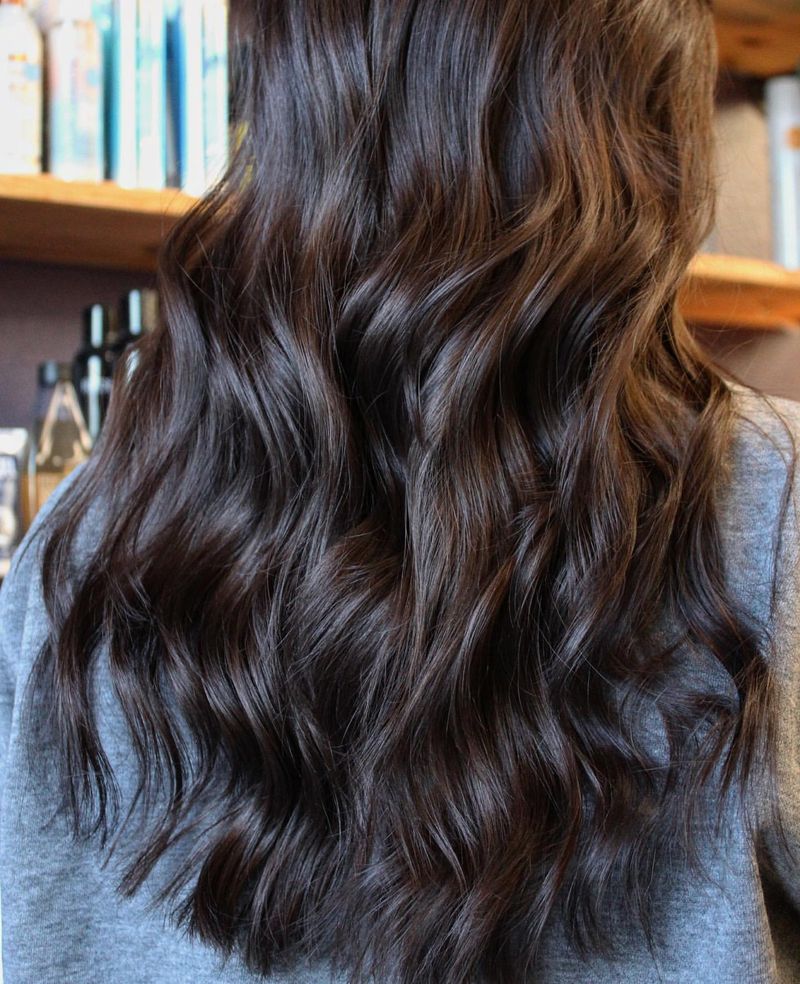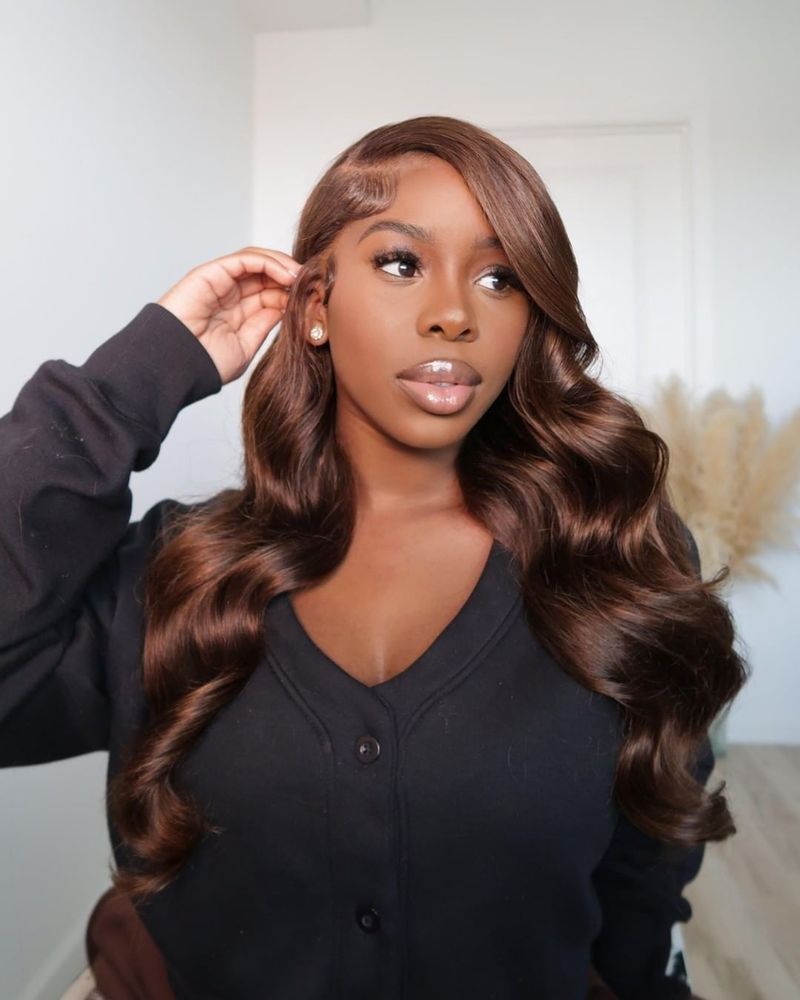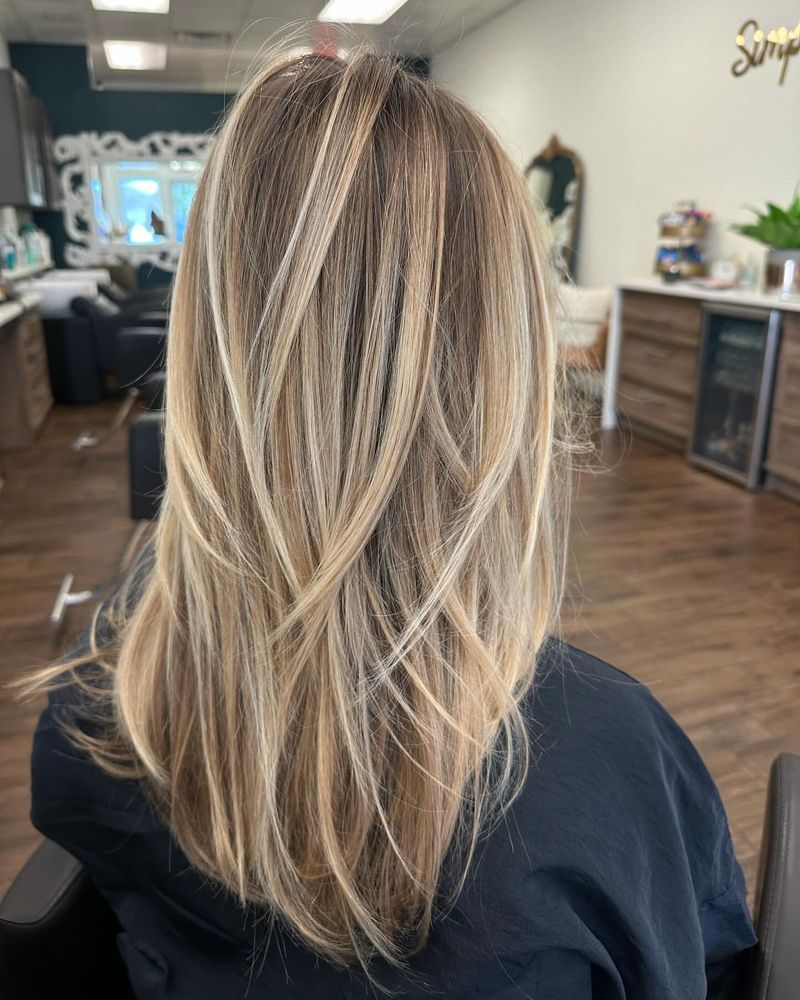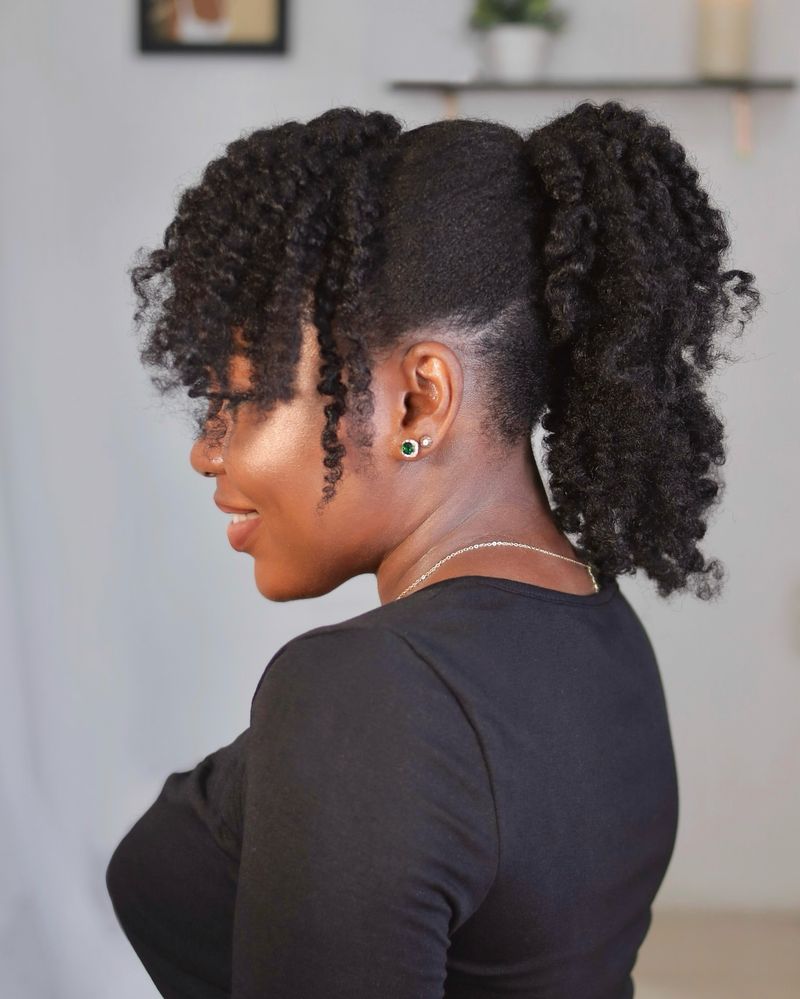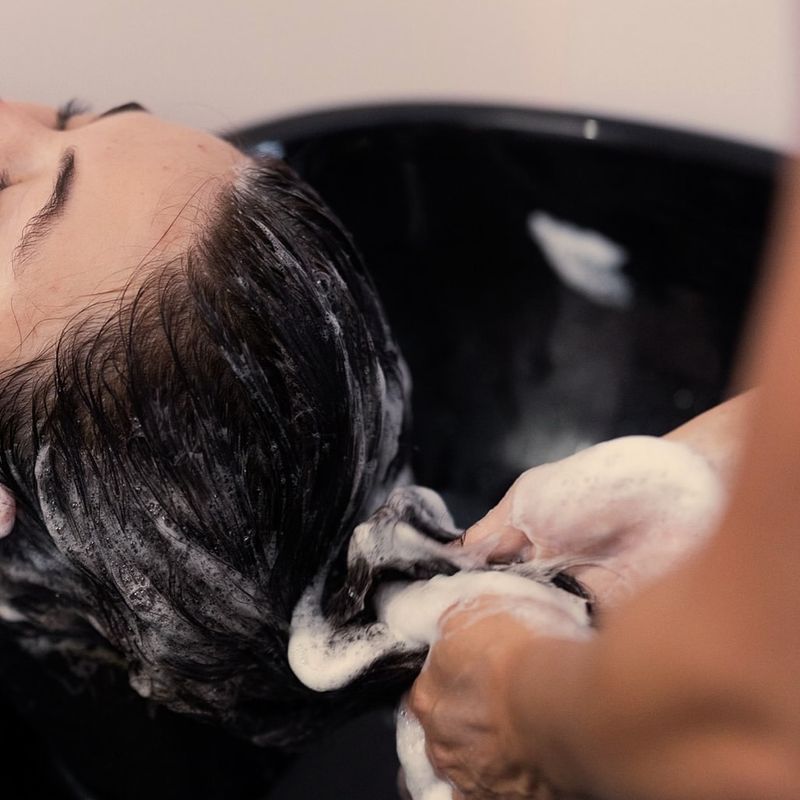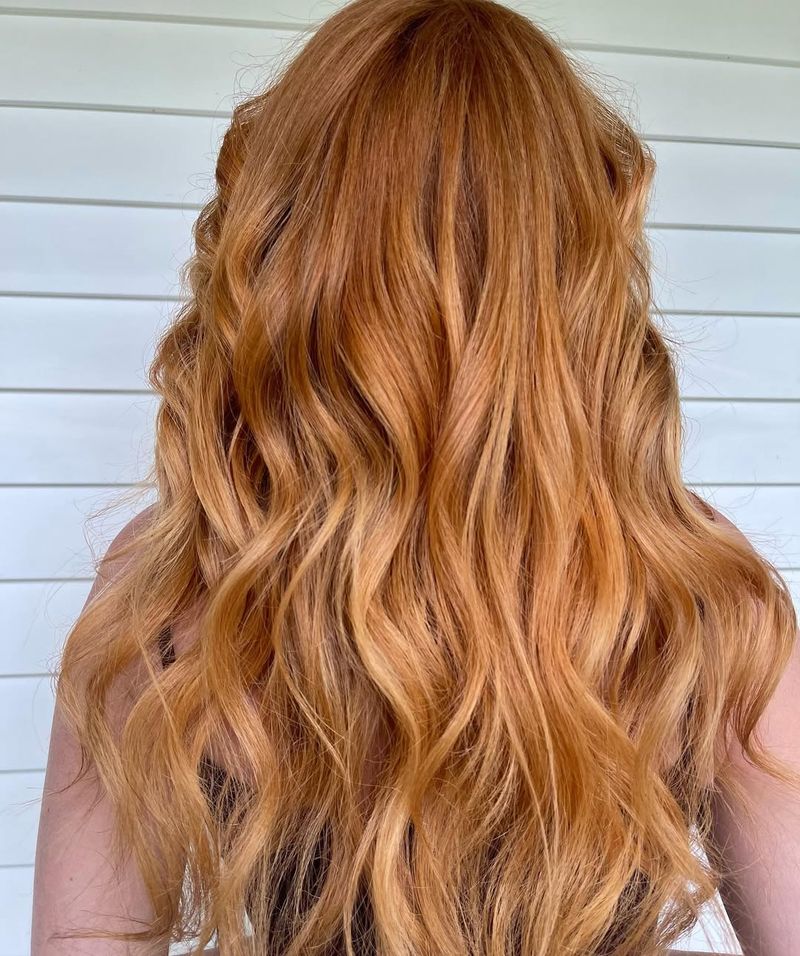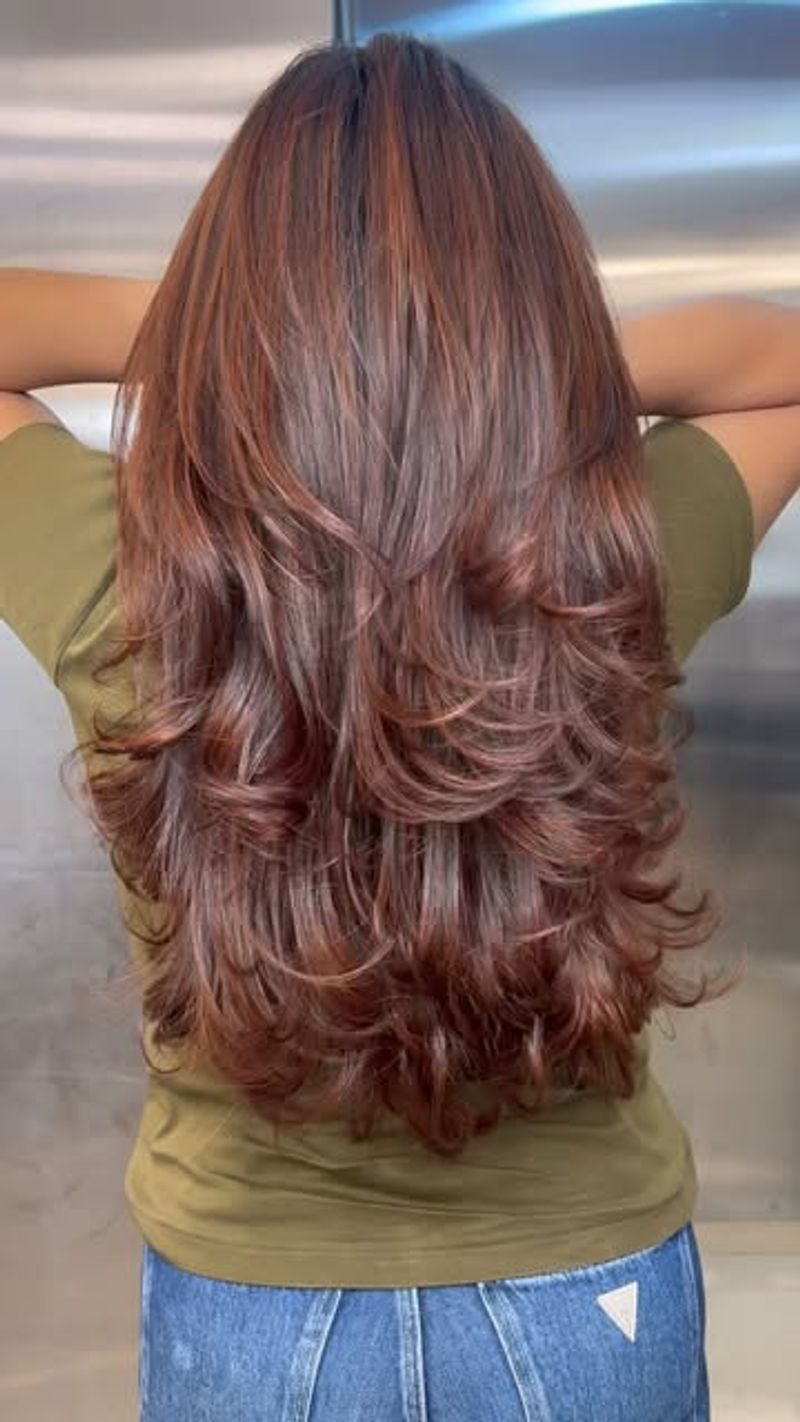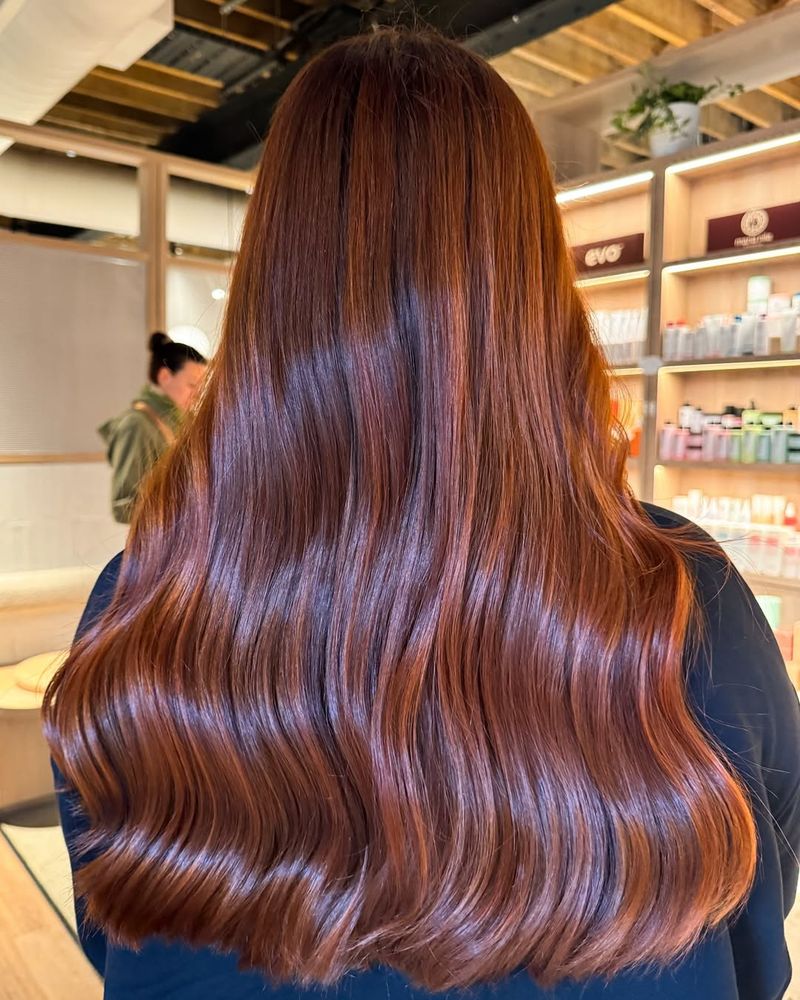Maintaining healthy, strong hair can be a challenge, especially when dealing with weak or damaged strands.
This comprehensive guide provides 33 actionable tips to help you nurture and restore your hair to its natural strength and vitality. From natural remedies to proper hair care practices, these strategies offer a wide range of solutions to suit different needs and hair types.
1. Use a Silk Pillowcase
Sleeping on silk can significantly reduce hair breakage and tangles. The smooth surface of silk minimizes friction, allowing hair to glide without snagging.
Related: -7 Straight-Hair Problems No One Talks About And 8 Easy Fixes That Shine
Additionally, silk helps retain moisture in your hair, preventing dryness that often leads to damage. A silk pillowcase is a simple yet effective investment in your hair’s health.
2. Deep Conditioning Treatments
Deep conditioning treatments can rejuvenate and strengthen your hair by providing intense hydration. These treatments penetrate deeply into hair shafts, repairing damage from within.
Use a rich, nourishing mask once a week to restore moisture balance. Choose products that contain natural oils or proteins for best results.
3. Trim Your Hair Regularly
Regular trims are essential to maintaining strong hair. Removing split ends prevents further damage from traveling up the hair shaft.
Aim to trim every six to eight weeks. This practice not only strengthens your hair but also promotes healthier growth by preventing breakage.
4. Incorporate a Healthy Diet
Your diet plays a crucial role in hair health. Consuming a balanced diet rich in vitamins, minerals, and proteins can fortify your hair from the inside out.
Foods like salmon, nuts, eggs, and leafy greens provide essential nutrients that strengthen hair and encourage growth.
5. Limit Heat Styling
Excessive heat styling is a major cause of hair damage. High temperatures break down hair proteins, weakening strands.
To protect your hair, limit the use of heat tools and always apply a heat protectant spray. Opt for air-drying or low-heat settings to minimize damage.
6. Use a Wide-Tooth Comb
A wide-tooth comb is gentle on your hair, reducing the risk of breakage. Unlike regular brushes that can snag and pull, this type of comb detangles hair with minimal stress.
Use it when your hair is wet to prevent stretching and snapping. This simple switch can encourage stronger hair.
7. Rinse with Cold Water
Rinsing with cold water seals hair cuticles, locking in moisture and adding shine. Cold water helps flatten the cuticle, making hair smoother and less prone to damage.
Ending your shower with a cool rinse can enhance the effectiveness of conditioners and leave your hair looking healthier.
8. Avoid Tight Hairstyles
Tight hairstyles like ponytails and braids can cause stress on the hair and scalp. Constant pulling leads to breakage and can even result in traction alopecia.
Opt for loose styles that give your hair a break and reduce tension on the roots.
9. Massage Your Scalp
Scalp massages stimulate blood circulation, promoting nutrient delivery to hair follicles. This boosts hair growth and strengthens existing strands.
Use gentle circular motions with your fingertips for five minutes daily. You can even enhance the experience by using a nourishing hair oil during the massage.
10. Hydrate with Water
Hydration is key to maintaining strong hair. Water supports every cell in your body, including those in your hair follicles.
Drinking plenty of water ensures that your hair remains hydrated and less prone to breakage. Aim for at least eight glasses a day to see positive effects on your hair’s strength.
11. Switch to Sulfate-Free Shampoo
Sulfates in shampoos can strip natural oils, leaving hair dry and brittle. Opt for sulfate-free shampoos to maintain your hair’s natural moisture balance.
These shampoos are gentle, preserving essential oils and proteins. With regular use, your hair can become softer, shinier, and more resilient.
12. Protect Hair from Sun
The sun’s UV rays can be just as harmful to your hair as they are to your skin. Prolonged exposure can lead to dryness and color fading.
Wearing a hat or using hair products with UV protection can shield your hair from sun damage, keeping it healthy and vibrant.
13. Use Hair Oils
Hair oils like argan, coconut, and jojoba provide essential nutrients and moisture. Applying a few drops can restore shine, smoothness, and strength.
These oils penetrate the hair shaft, repairing damage and protecting against future stressors. Regular use can lead to noticeable improvements in hair health.
14. Use a Clarifying Shampoo Occasionally
Clarifying shampoos remove buildup from styling products and hard water minerals. These residues can weigh hair down, making it appear dull and lifeless.
Using a clarifying shampoo once a month can help restore your hair’s natural vitality and improve the effectiveness of other hair care products.
15. Eat Foods Rich in Biotin
Biotin is vital for hair health and growth. Consuming biotin-rich foods, like eggs, nuts, and spinach, can strengthen hair and prevent thinning.
Biotin supplements can also be beneficial, but it’s best to consult a healthcare provider before starting them. This nutrient supports keratin production, the protein that makes up hair.
16. Avoid Over-Washing
Washing your hair too frequently can strip it of natural oils, leading to dryness and weakness. Instead, try to wash your hair two to three times a week, depending on your hair type.
This practice allows natural oils to nourish and protect your hair, leading to stronger, healthier strands.
17. Sleep with Braids
Sleeping with your hair in loose braids can minimize tangling and breakage. Braids help to keep hair contained and protected throughout the night.
This simple technique can result in fewer split ends and stronger hair over time. Make sure braids are not too tight to avoid tension on the scalp.
18. Incorporate Omega-3 Fatty Acids
Omega-3 fatty acids nourish hair follicles, promoting healthy growth and strength. Foods like salmon, flaxseeds, and walnuts are excellent sources.
These healthy fats provide essential nutrients that improve hair elasticity and shine. Incorporating them into your diet can lead to noticeable improvements in hair health and resilience.
19. Use Leave-In Conditioners
Leave-in conditioners offer continuous moisture and protection against environmental stressors. They help detangle, smooth, and strengthen hair throughout the day.
Apply a small amount to damp hair and distribute evenly. Choose a formula that suits your hair type to enjoy softer, more resilient strands.
20. Avoid Chemical Treatments
Chemical treatments, like coloring and relaxing, can weaken hair by altering its structure. Over time, these processes strip proteins and moisture, leading to brittle strands.
Opt for natural alternatives or space out treatments to allow hair time to recover. This will help maintain its strength and elasticity.
21. Regular Protein Treatments
Protein treatments fortify hair by replenishing lost keratin, the protein that hair is made of. These treatments restore strength and resilience, making hair less prone to breakage.
Use a protein mask or treatment every few weeks to keep your hair healthy. Balance is key; too much protein can lead to stiffness.
22. Try a Collagen Supplement
Collagen supports hair strength by providing amino acids essential for keratin production. Taking a collagen supplement can enhance hair elasticity and thickness, leading to stronger strands.
This protein also supports overall skin and nail health. Consult a healthcare provider to find the right dosage for your needs.
23. Try Ayurvedic Hair Care
Ayurvedic hair care involves using natural herbs and oils to strengthen hair. Ingredients like amla, bhringraj, and neem nourish the scalp and promote healthy growth.
These traditional remedies have been used for centuries to enhance hair health. Incorporate them into your routine for a holistic approach to stronger hair.
24. Use a Heat Protectant
Heat protectants form a barrier between your hair and styling tools, preventing damage from high temperatures. These products reduce moisture loss and protein breakdown.
Apply a heat protectant spray before using any heat tool to safeguard your strands. This simple step can significantly improve your hair’s resilience.
25. Limit Chemical Exposure
Avoiding harsh chemicals helps maintain your hair’s strength and integrity. Opt for natural, sulfate-free, and paraben-free products that nourish without stripping essential oils.
Reducing chemical exposure preserves your hair’s natural resilience, leading to stronger, healthier strands that can withstand daily wear and tear.
26. Use a Microfiber Towel
Microfiber towels are gentle on wet hair, reducing friction and preventing breakage. Unlike regular towels, they absorb water quickly without roughing up cuticles.
Gently pat your hair dry with a microfiber towel to minimize damage and maintain smooth, strong hair. This switch is a small change with significant benefits.
27. Incorporate Zinc in Diet
Zinc plays a vital role in hair tissue growth and repair. Include zinc-rich foods like oysters, beef, and pumpkin seeds in your diet to strengthen hair.
This mineral helps maintain oil glands around hair follicles, keeping them healthy. Adequate zinc intake can reduce hair thinning and promote robust growth.
28. Embrace Natural Hairstyles
Embracing natural hairstyles reduces the need for damaging practices like heat styling and chemical treatments. Letting your hair air-dry and flaunting its natural texture can enhance its health and strength.
Experiment with styles that work with your hair’s natural tendencies to promote resilience and minimize breakage.
29. Try Scalp Exfoliation
Scalp exfoliation removes dead skin cells and product buildup, promoting a healthy environment for hair growth.
Use a gentle scrub or brush to exfoliate weekly, enhancing circulation and nutrient delivery to follicles. This practice can lead to stronger, more vibrant hair by preventing clogged follicles and supporting renewal.
30. Stay Consistent with Care Routine
Consistency is key in hair care. Sticking to a routine with suitable products ensures your hair receives continuous nourishment and protection.
Regular maintenance, from cleansing to conditioning, strengthens hair over time. Adjust your regimen based on your hair’s needs and changes, but remain committed for optimal results.
31. Reduce Stress through Relaxation
Stress can negatively impact hair health, leading to thinning and breakage. Practicing relaxation techniques like meditation, yoga, or deep breathing can reduce stress levels.
These practices promote overall well-being, including hair strength. Dedicate time daily to unwind and focus on self-care for healthier, more resilient hair.
32. Balance Hormones Naturally
Hormonal imbalances can affect hair strength and growth. Natural remedies like herbal teas, supplements, and lifestyle changes can help balance hormones.
Consulting with a healthcare provider to address underlying issues can improve hair health. Taking a holistic approach can lead to lasting improvements and stronger hair.
33. Protect Hair During Exercise
Exercise can lead to sweat and friction, which may weaken hair. Protect your hair by wearing a headband or tying it up in a loose bun.
This reduces tension and exposure to sweat. After workouts, promptly cleanse your hair to remove salt and prevent buildup, ensuring your hair remains strong and healthy.


